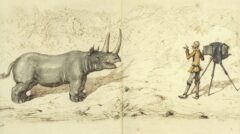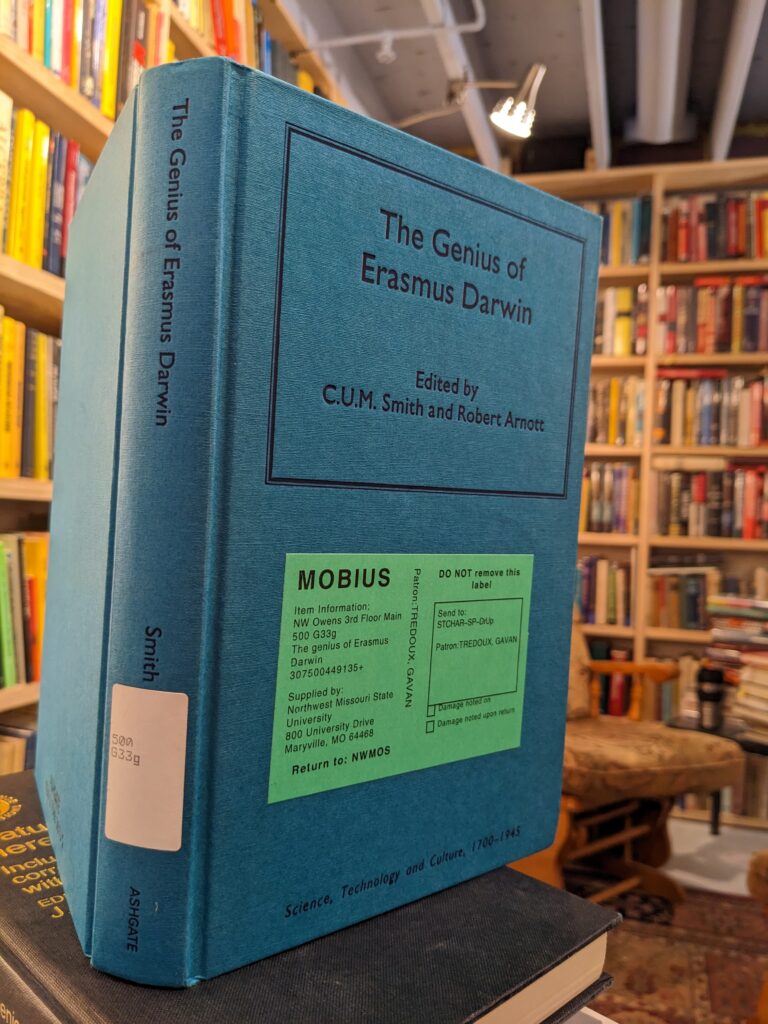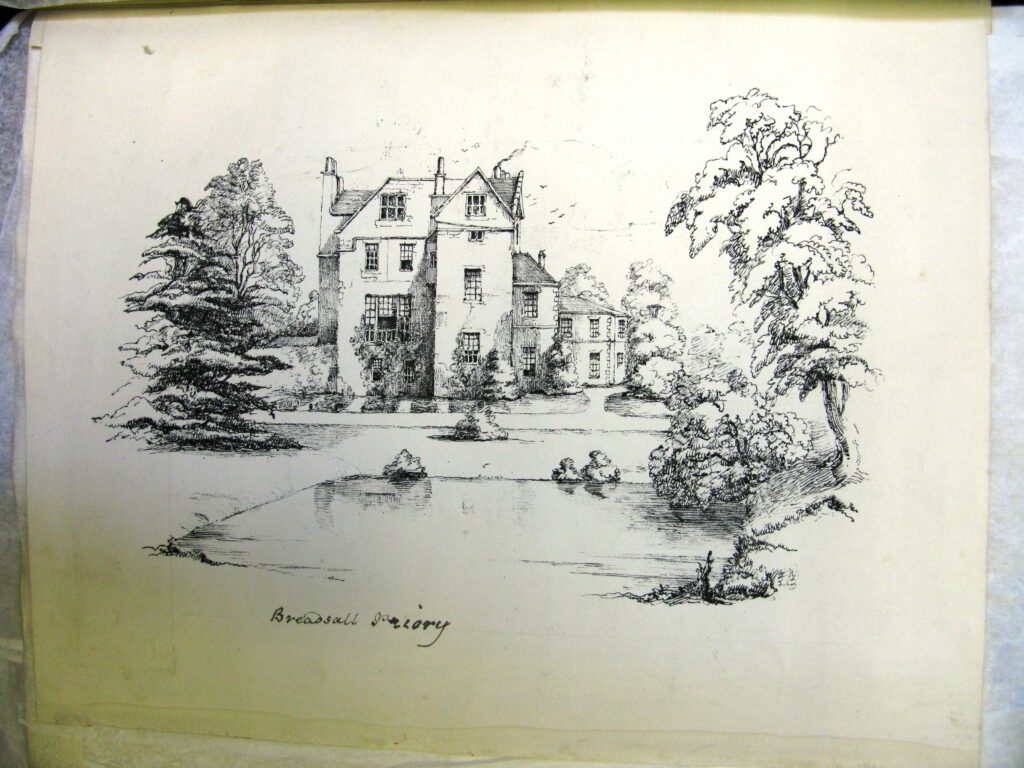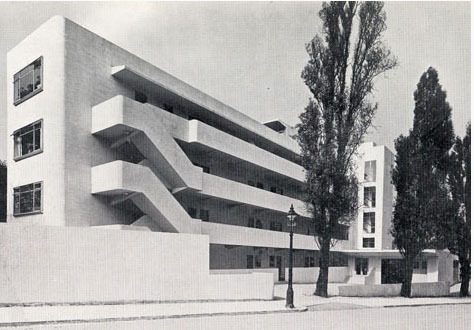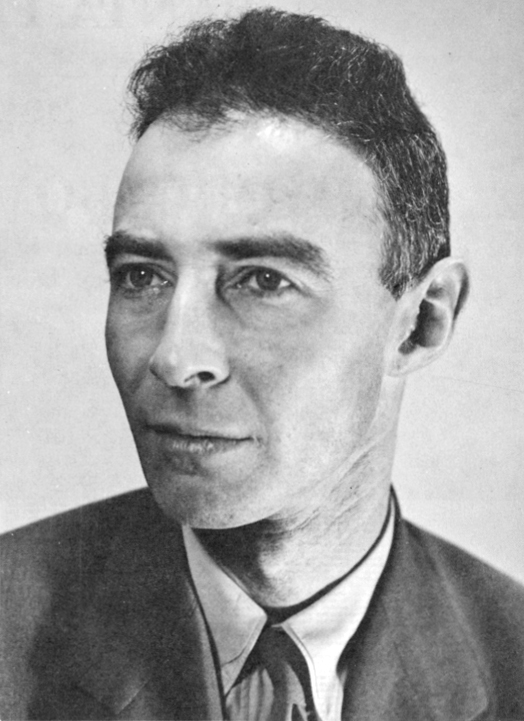
Sacco and Vanzetti. Alger Hiss. The Rosenbergs. Celebrity cases where so many expended endless energy arguing that the subjects were stitched up. All of them were, of course, guilty. From the start that was obvious about Sacco and Vanzetti, who were more than just a Soviet pencil factory and a bad folk song. Now we have ballistic evidence. After about half an hour it was obvious for Alger Hiss too, who was a knock-on effect from Sacco and Vanzetti, since it was that case that had radicalized him. Myths have consequences.
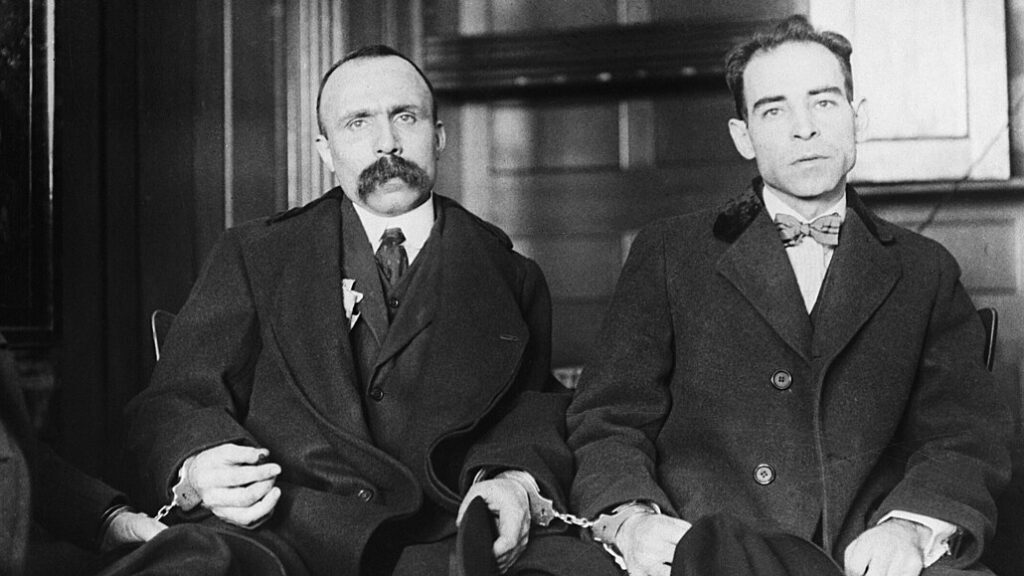
Add to these J. Robert Oppenheimer, eminent physicist and scientific head of the Manhattan Project, who lost his security clearance in 1954 amid concerns about his trustworthiness. Was he hard done by?
The Energy Department seems to think so. Read it and wonder at the reasoning. They just restored Oppenheimer’s security clearance, posthumously, in the year 2022. Apparently he was the victim of a “witch hunt”. Now, the defining characteristic of witch hunts is that there weren’t any witches. It isn’t actually possible to fly to Algeria on your broomstick, there to succour Old Nick on your supernumerary teat, attractive though that might sound when work is scarce.
Whereas it really was possible to act in the interests of the Soviet Union because of your ideological delusions, and we have rather a lot of cases where people did that. And though for decades many did their very best to pretend otherwise, the Soviet union first got the bomb, and so quickly, through espionage. Every year another agent in the Manhattan or Tube Alloys project, or around it, is identified. There were already plenty of known ones in Oppenheimer’s era, not the least of which was Klaus Fuchs. Add to that Theodore Hall, David Greenglass, and Oscar Seborer. The Rosenbergs (see Greenglass) too. And we now know beyond any doubt that both Rosenbergs were guilty, so that old canard about innocent Ruth must fall away.
The Oppenheimer story is usually told in terms of framing. We are lectured that he was persecuted for coming to oppose the hydrogen bomb. Vindictiveness and politics led to his security clearance being revoked, with no real grounds. That frenzied witch-hunt. There is no evidence for that. But there is now substantial evidence that Oppenheimer perjured himself. He may well have been a direct Soviet agent for a period of time. Let us present a document, obtained from Soviet archives by Leona and Jerrold Schecter. Published in their Sacred Secrets (2002). See also this discussion from the Wilson Center.
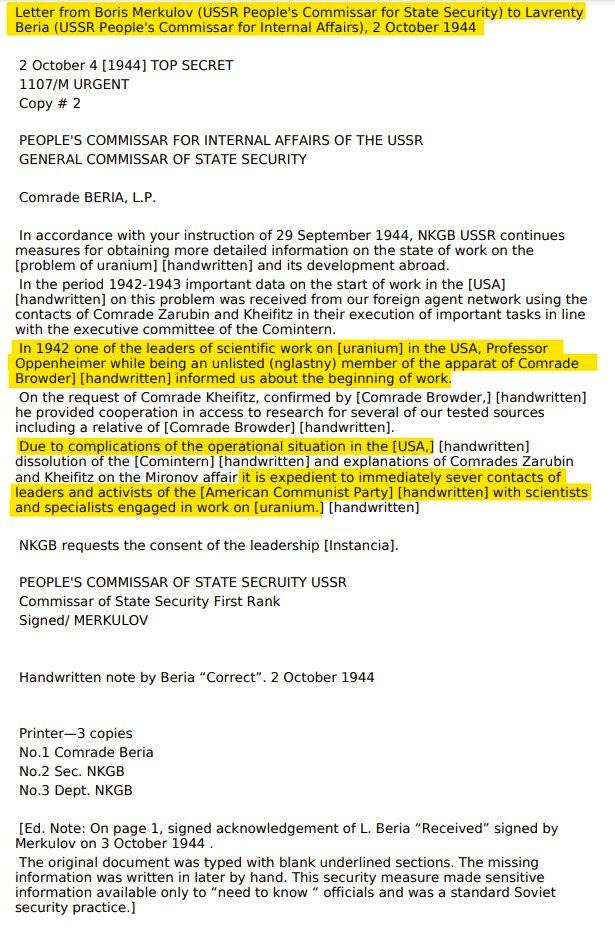
Comrade Browder was Earl Browder, head of the Communist Party of the United States, and a Soviet agent himself.
There is other evidence from Pavel Sudoplatov, a former KGB man who published memoirs with all sorts of stories in them, but these often contain so many clear errors that few would put much faith in them. So we will disregard that here, even though that is not the Bayesian method. (In such matters, RA Fisher may have been right.)
It comes down to this. The Schechter document suggests that Oppenheimer was also a Soviet agent. Can it be trusted?
There is corroborating evidence that Oppenheimer was a concealed Communist Party member, which may easily be obtained by consulting Haynes and Klehr’s comprehensive summary in Spies (Yale, 2009).
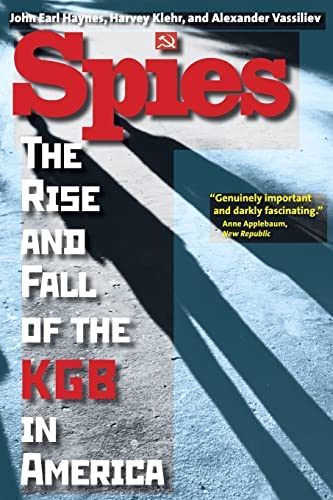
Oppenheimer also lied about being a member of the Communist Party. He did so repeatedly and under oath, most memorably in front of the Atomic Energy hearing in 1954, where he even admitted to giving a lot of money to the Party, dissimulated about joining fronts, but denied at length ever being a member, let alone a concealed member. The FBI already knew this was a lie from telephone taps and wealth of other evidence, not to mention common sense.
Haynes and Klehr are wary of placing much emphasis on the document obtained by the Schechters, since (of course) doubts were immediately raised. Is it genuine? Was the KGB officer merely bragging and claiming more influence over Oppenheimer than he really had?
With regard to forgery, this is always possible, but requires further evidence. What grounds do we have to believe that the document was forged? None so far. Merely raising the possibility is not enough. Until shown otherwise, it should be taken as it is.
As for bragging, and claiming too much, this is possible, but about which claims? Haynes and Klehr point out that other documents suggest frustration within Soviet intelligence that they were not getting all the information that they needed. The Soviets wanted more. They wanted it faster. Haynes and Klehr’s co-author, the defector Alexander Vassiliev, smuggled out notebooks which apparently have a lot of indications of this frustration, dealt with fully by Haynes and Klehr. And surely if Oppenheimer had been passing secrets, the Soviets would have got the bomb even sooner?
It isn’t possible to analyze claims like “the Soviets would have got the bomb sooner”. Sooner than when? What kind of secrets? How could we know one way or the other? They had technical challenges too. There were other factors. It is not a proposition to depend on. Not too much emphasis should be placed on those frustrations either. Information was kept siloed within Soviet intelligence. Others may have known more. Above all I must (respectfully) depreciate Haynes and Klehr’s conclusion that the documents they have establish that Oppenheimer was not a spy. The principal question is whether he had or had not spied at any point. By the time of writing he may simply have become inactive. Their documents do not speak to that. It is easy to speculate, let’s stick to what we actually know, and clearly identify supposition.
There is no rational basis to doubt that Oppenheimer concealed his CP membership. As such, he was a security threat. He had already lied under oath about it, a subject of intense national concern. He had not come clean, and never did. He even threatened to sue Haakon Chevalier when his former communist friend threatened to expose him. As a result, Chevalier had to obfuscate all that in the book he published.
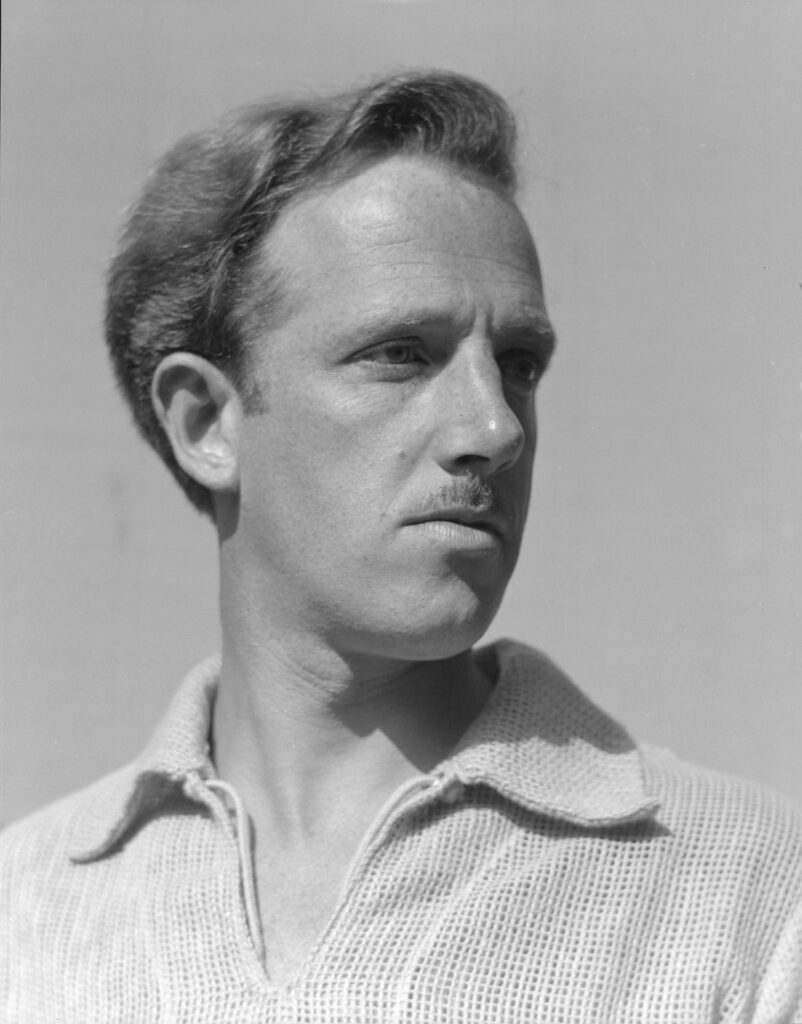
Robert’s brother Frank, also a physicist, was a CP member too. All along Frank had vehemently denied that. Until 1949, when he admitted he had been lying, and confessed to being a member until 1941. The whole truth? Frank, but not Robert. Oh, and Robert’s wife Katherine, formerly married to a CP functionary who had died in Spain serving in the Civil War, was a known CP member. Not to mention Robert’s landlady in Berkeley. It could happen to anyone!
Instead, Oppenheimer artfully made up stories about being only a member of fringe organizations like the Popular Front, not the CP itself. He was naive, he admitted, but no more. In fact, his loyalty had survived the Nazi-Soviet pact of 1939, a useful litmus test which had even driven Victor Gollancz out of the party, though not JBS Haldane. That shows will to believe and will to deceive. It shows effort and enterprise. So revoking his security clearance was the only defensible response. Restoring it retrospectively is silly, and in defiance of known facts.
Now with regards to Oppenheimer’s ultimate guilt, let’s lay out the possibilities, after first stipulating that he joined the Manhattan Project as a concealed Communist Party member answerable to Earl Browder and repeatedly lied about it to General Groves, the administrative head of the Manhattan Project, and under oath. What did he then do? Some alternatives.
- Nothing. He only ever acted in the interest of the United States and did not make any effort to further the atomic program of the Soviet Union in any way whatsoever. He was just embarrassed from the start about his CP associations, so he concealed them. (It would have to be from the very start, otherwise there is a definite window in which he was acting nefariously).
- Influence. He did not personally pass secrets to the Soviets but instead used his position to further their interests, perhaps by placing others in a position to do more direct damage, turning a blind eye. Caution led him to be discreet. He was a smart man.
- Espionage. Not only did he use influence, but he really did inform the Soviets that the program was underway in 1942, as the Schechter document baldly states. That in itself is a consequential act of espionage, not requiring disclosure of actual bomb plans as those became available. At some stage, perhaps early on, he became rattled, suspecting that the authorities were on to him, and then clammed up. This explains growing frustration within Soviet intelligence that he was no longer being so useful to them, that they were not getting more actionable intelligence.
- Full-bore espionage. He passed secrets including bomb plans, or consciously enabled others to do so. The indications of Soviet frustration merely reflect the intense pressure they were under and silos within their own structures.
Which is best supported by the known facts? Possibility 1 is simply infeasible. There would have been some period in which his loyalties were divided. That is what it means to be a concealed Communist Party member. You owe loyalty to a foreign power, and we can no longer pretend that CPUSA was anything aside from a wholly owned subsidiary of Moscow, acting in their interests. They paid for it, they ran it, they purged it, they stocked it.
Haynes and Klehr find 4 hard to reconcile, but impossible to dismiss 2. They do not, in my opinion, properly consider 3, which I favour. It seems pretty unlikely that the Merkulov would claim that Oppenheimer had informed them about the program if he had not. Exaggeration doesn’t fit here. Either he had or he hadn’t.
There were pretty stiff penalties for straight-up dishonesty about things that could be checked and would have been common knowledge within circles concerned with the atomic program of the USSR, involving a lot of research into frost resistance and lead tolerance. For the longest time Stalin, constitutionally paranoid, did not even trust the flow of information he got from Kim Philby and the Cambridge ring. (It seemed inconceivable to him that the West could be that lax. He even sent spies to spy on his spies. But not his best spies, their bad clothes immediately marked them out and rattled Philby.)
Based on the documents we have, Oppenheimer was an agent between 1942 when he told the Soviets about the atomic program and some later date, still unknown, when he may have developed cold feet. He not only deserved to lose his security clearance, he warranted perjury charges as well, maybe worse. That’s how Alger Hiss was settled.
Which reminds one of an interview David Remnick conducted with Victor Navasky about Hiss, an object of unremitting reverence to The Nation. What would you do, he asked, if Alger Hiss actually confessed tomorrow? I wouldn’t believe him. Navasky declared. Which is at least honest, in an oblique sort of way.
One gets the same feeling about Oppenheimer. A signed and sealed confession with a dozen witnesses, all held in a temperature-controlled vault, wouldn’t cut it now. The man simply must be innocent.
